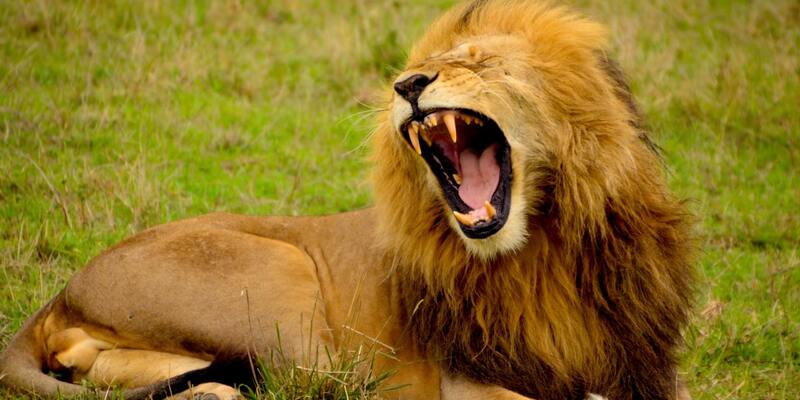The Majestic Lion: Understanding the King of the Jungle

Lions have long been a symbol of strength, courage, and majesty. Known as the “King of the Jungle,” these magnificent creatures have fascinated humans for centuries with their powerful presence and social behavior. For seniors who appreciate nature and wildlife, learning about lions can be both an enjoyable and educational experience. In this article, we’ll explore the fascinating world of lions, their behavior, their role in the ecosystem, and why they remain one of the most iconic animals on Earth.
A Closer Look at Lions
Lions are part of the big cat family, scientifically known as Panthera leo. Unlike other big cats, lions are highly social animals, living in groups called prides. A pride typically consists of several related females, their cubs, and a small number of adult males. This social structure is unique among cats and plays a crucial role in the survival and success of lions in the wild.
Males are easily recognized by their impressive manes, which can vary in color from blond to black. The mane not only makes the male lion appear larger and more intimidating, but it also offers some protection during fights with other males. Female lions, on the other hand, are the primary hunters in the pride, working together to take down prey.
The Life of a Lion
Lions are native to Africa, with the majority living in the savannas, grasslands, and open woodlands of sub-Saharan Africa. They are apex predators, meaning they are at the top of the food chain with no natural enemies. Lions primarily hunt large herbivores such as zebras, wildebeests, and buffalo. Their hunting strategy involves teamwork, with lionesses working together to stalk and ambush their prey.
While they are known for their hunting prowess, lions spend a significant portion of their day resting. In fact, lions can sleep up to 20 hours a day! This behavior conserves energy, which is crucial for survival, especially in the hot climates where they live.
The Role of Lions in the Ecosystem
Lions play a vital role in maintaining the balance of their ecosystems. As apex predators, they help control the populations of large herbivores, which in turn prevents overgrazing and allows vegetation to thrive. This balance is essential for the overall health of the environment, benefiting many other species that share the habitat with lions.
However, lions face several threats in the wild. Habitat loss, human-wildlife conflict, and poaching have significantly reduced lion populations over the years. Conservation efforts are ongoing to protect these magnificent animals and their habitats, ensuring that future generations can continue to witness their majesty.
Lions in Culture and History
Lions have held a special place in human culture for thousands of years. In ancient Egypt, lions were associated with the sun god Ra and were symbols of power and protection. Throughout history, lions have appeared in art, literature, and folklore across many cultures, often representing bravery, leadership, and nobility.
For seniors, the lion’s image might bring back memories of classic films, books, or even visits to the zoo. The lion’s enduring presence in our lives is a testament to its powerful symbolism and the awe it inspires.
Conservation and the Future of Lions
Today, the future of lions is uncertain. With their populations declining, particularly in West Africa, conservationists are working tirelessly to protect these majestic animals. Organizations like the Lion Recovery Fund and various wildlife reserves across Africa are dedicated to preserving lion habitats and reducing human-lion conflicts.
As someone who cares about the natural world, there are ways to contribute to lion conservation efforts. Supporting reputable wildlife charities, learning more about lion habitats, and spreading awareness about the importance of conservation can all make a difference in the fight to protect the King of the Jungle.
In Conclusion
Lions are more than just powerful predators; they are a vital part of our world’s natural heritage. Understanding their behavior, their role in the ecosystem, and the challenges they face can deepen our appreciation for these incredible animals. Whether through documentaries, books, or personal experiences, learning about lions offers a window into the wild and a reminder of the importance of conservation. As seniors, sharing this knowledge with younger generations can help ensure that the lion’s roar continues to be heard for many years to come.






